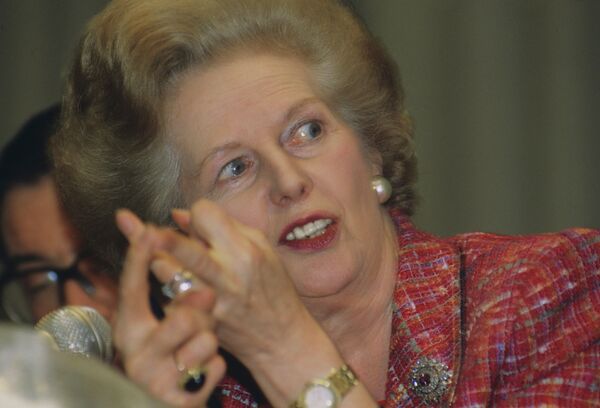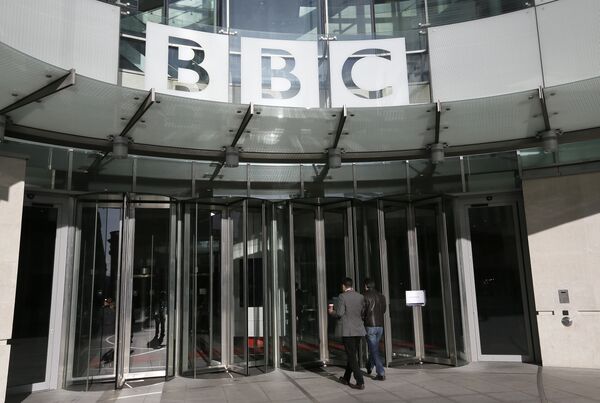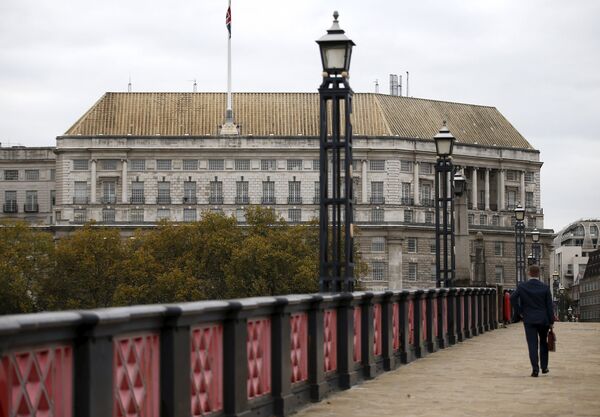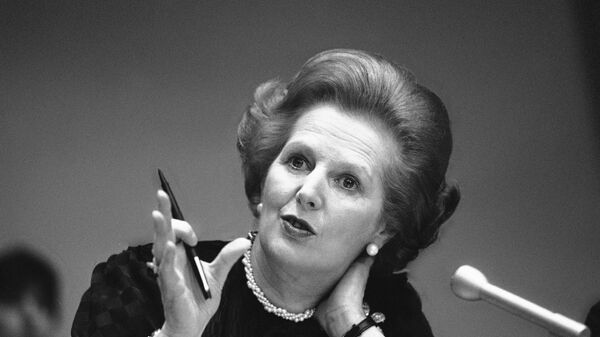The nationwide miners strikes in 1984 pitted almost 150,000 trade unionists against the collective power of the British state — the government, police, military and intelligence services. Authorities eventually emerged victorious, but it'd been a close-run, bruising battle — and Whitehall officials were extremely concerned about the prospect of further industrial strife undermining their authority, perhaps fatally.
Their fears were seemingly confirmed in short order when computer operators at the Department of Health and Social Services in Newcastle staged a seven-month-long dispute of their own — the small group wreaked ample havoc, disrupting the transfer of welfare payments to millions.
On top of the seismic disruption inflicted, official anxieties were further amplified as some of the strikers were believed to be Trotskyists — raising the prospect for officials their activities were being directed by the Soviet Union.

As a result, the Interdepartmental Group on Subversion in Public Life (SPL) was established — on its board sat representatives from each major government department, MI5 and Special Branch, while the Subversion (Home) Committee oversaw its activities.
Subversives Everywhere
MI5 — frequently referred to in the files as ‘BOX 500', a reference to its official wartime address of PO Box 500 — assessed there were approximately 50,000 'subversives' residing in the UK in 1985. Subversives were defined as individuals engaged in activities "[threatening] the wellbeing of the state…intended to undermine or overthrow parliamentary democracy by political, industrial or violent means".
After intense review of staff records and spy agency files, the SPL concluded just under three percent of the total number of subversives in Britain (1,400) were employed in the civil service. This included 360 in the Department of Health, 169 at the Inland Revenue and 111 at the Ministry of Defense.
Of the 1,400, 733 were deemed Trotskyists, 607 simply communists, 45 fascists, and 35 anarchists, Scottish or Welsh nationalists, or "black or Asian racial extremists".
Around 280 Trotskyists were thought to be members of entryist group Militant Tendency, singled out in files as the "largest, most threatening" Trotskyist organization in the UK. Officials found the "dedication" and "strong internal discipline" of its members troubling, and were also disquieted by its rapid rate of growth — between 1979 and 1985 its membership quadrupled. Files from 1988 indicate the number of identified Militant Tendency members had almost doubled.
While an obvious solution to the apparent contagion would be a mass-defenestration of identified individuals, this was judged too dangerous. Instead, it was decided potentially insurrectionary individuals would simply be keenly monitored, precluded from promotion, and isolated from internal computers as much as possible. The transfer of suspect civil servants to roles with "less potential for disruption" was also mooted as a strategy.
While the majority of identified subversives worked in junior clerical positions, the risk of these individuals using their positions to cause disruption was still considered high, with the SPL recommending they should be "distanced from such work".
However, the identification and surveillance of troublesome individuals within certain civil service fields proved problematic — particularly teaching and health. As central government didn't directly employ workers in either sphere, intelligence operatives judged it impossible to compile an accurate list of resident subversives "without alerting those concerned", which presented "a high risk of public exposure of our investigation".
Eventually, it was decided to circumvent this problem by compelling school inspectors to report directly to MI5 on the political leanings of teaching staff — although the spying agency also conducted a covert operation in an octet of London schools, seeking out subversive teachers.
Whether a correspondent action was launched in respect of health service workers isn't disclosed in available files — although it may be significant certain documents and pages remain withheld by the Cabinet Office on national security grounds.
Officials were acutely aware of the risks of the SPL's activities being made public, and reference is frequently made in the declassified files to the need to keep its work confidential. In one representative memo from June 1988, then-SPL chair John Chilcot (who would later head the Iraq Inquiry), refers to the "high risk of embarrassment in the event of any leak". Despite this, he felt it "right on balance to continue" with the program.
Making Trouble
While the Prime Minister was aware of and supported the SPL's activities, she did not receive the body's annual reports, merely its recommendations, and tallies of subversives employed in each government department.
In one letter penned to Cabinet Secretary Robert Armstrong dated December 1985, Thatcher expressed concern about the small number of subversives employed as higher executive officers and above, and made clear civil service managers should be "very ready" to dismiss any "troublemakers".
The next year, Armstrong relayed these sentiments to senior civil servants, advocating "vigorous management action" against subversive employees if "their conduct justifies it".
While the available files do not reveal whether this directive resulted in sackings, a similar covert structure in place at the BBC resulted in many reputations and careers being derailed, if not outright destroyed, due to stringent MI5 oversight.

Applicants didn't even need to be a member of certain political groups to be precluded from employment with the Corporation — tangential associations (a friend of a relative being a member, for instance) was sufficient.
Those with unsavory political affiliations who did make it through were generally precluded from promotions and internal transfers. For instance, in 1969 film director John Goldschmidt was commissioned to make a film for the BBC about the occupation by students of Hornsey Art College. During filming, he discovered police had been checking the details of a car he'd hired and had also been watching his house — and without warning or explanation, the BBC canceled the film without explanation.
Two years later the UK state broadcaster once again asked him to make a film, but once again when filming started he was stopped from working, an embarrassed executive telling him he "[wasn't] allowed to work" for the BBC. It was subsequently revealed he'd blacklisted by MI5 for taking part in an exchange of students between his art college and a Czech film school, spending a few weeks in Czechoslovakia in the process.
Graduate trainee Michael Rosen was similarly blacklisted by MI5 for a number of 'offenses' — student activism at Oxford, making a radio documentary about French Marxist Regis Debray during his BBC training, and producing a film featuring clips of US soldiers being tested with LSD.
The US Embassy in London complained about the latter project — and Rosen — to both MI5 and the BBC directly. He was subsequently sacked in 1972, on the ostensible basis no department was prepared to offer him work — despite many BBC divisions being extremely keen to use his talents. He went on to enjoy a successful career as a writer of plays and children's books.

The practice of blacklisting is also prevalent in the construction industry, despite its inherent illegality. Secret databases naming construction industry workers who may cause trouble for their employers are used extensively by major construction firms, with thousands of laborers unable to find work as a result.
Affected individuals have rarely done anything illegal — often, they're blacklisted simply for raising concerns about site safety, or other work and worker-related issues. In 2009, files seized from the offices of the Consulting Association, a firm that compiled and sold information on 'problematic' laborers, revealed some individuals were ostracized for wearing anti-Nazi league badges, talking like a "young Alf Garnett", or being committed trade unionists.
On March 23, it was admitted by London's Metropolitan Police undercover police officers supplied some of the information that appeared in the files of blacklisting victims, leaving the force open to charges of breach of privacy, defamation and breach of the Data Protection Act.




